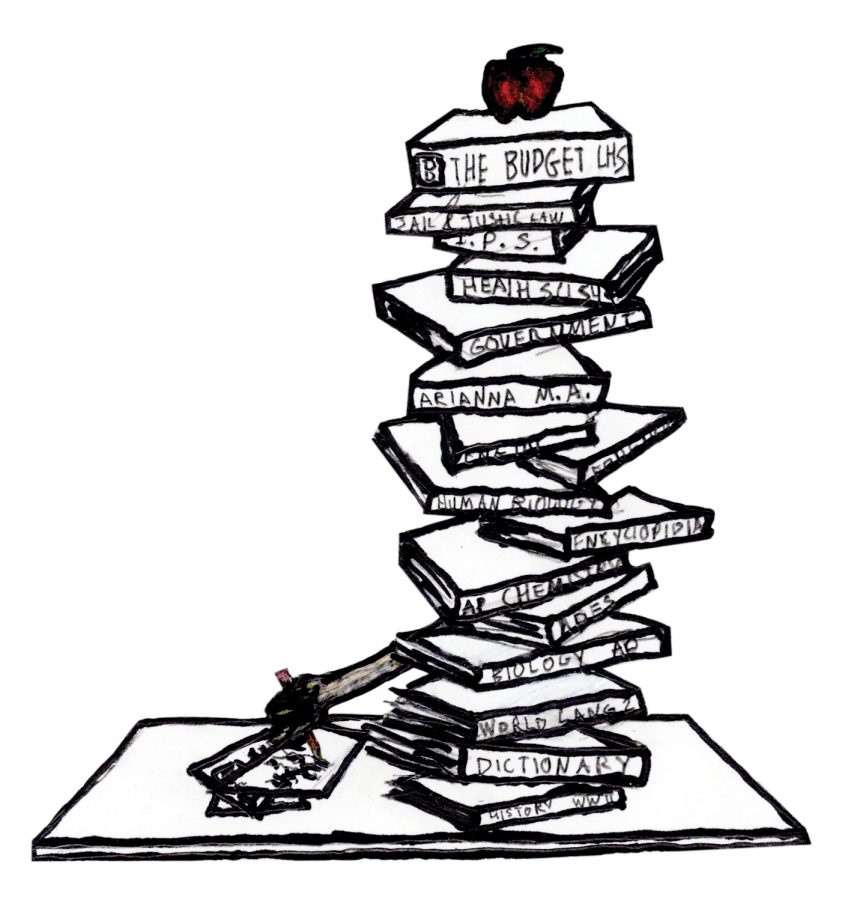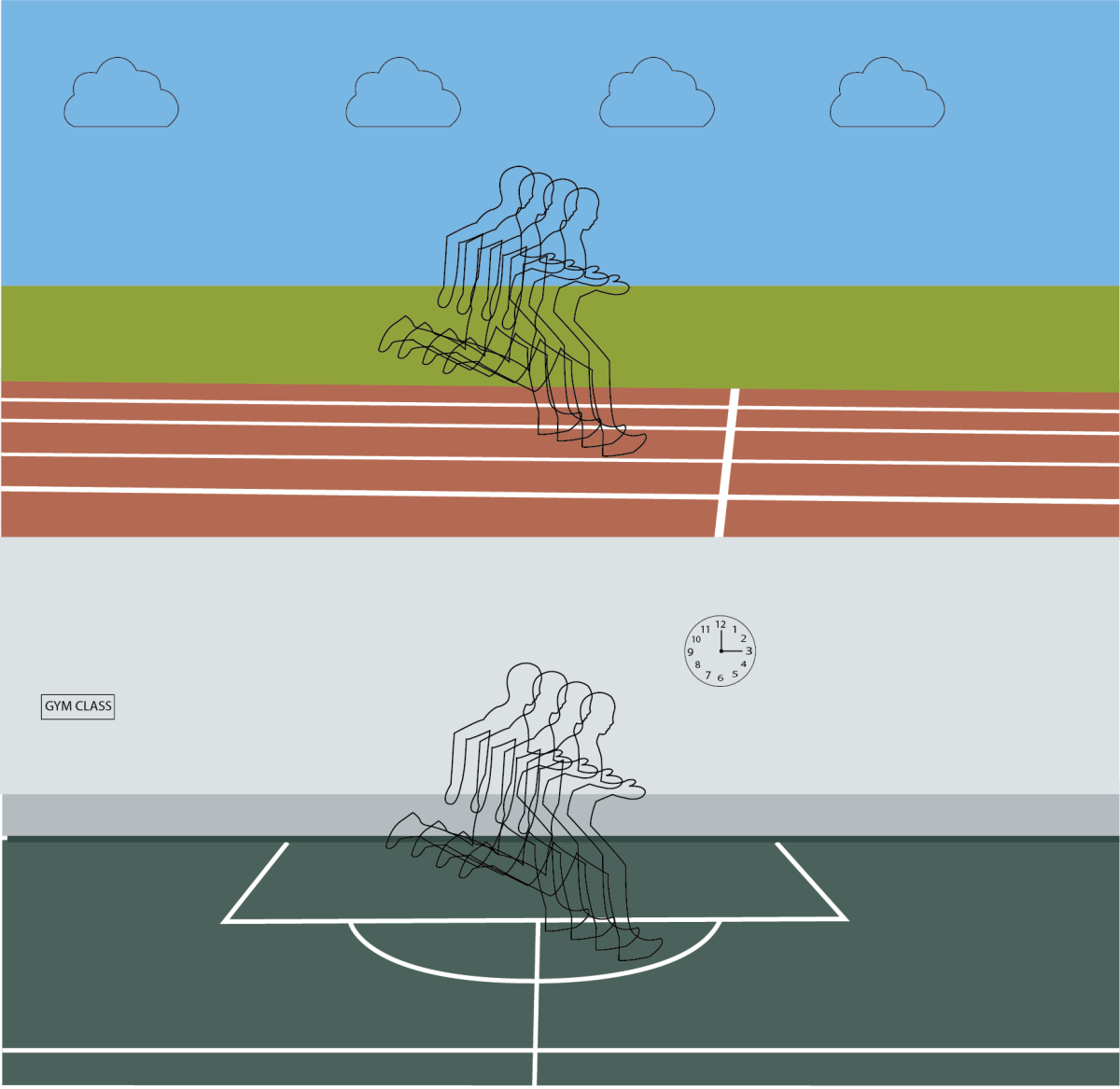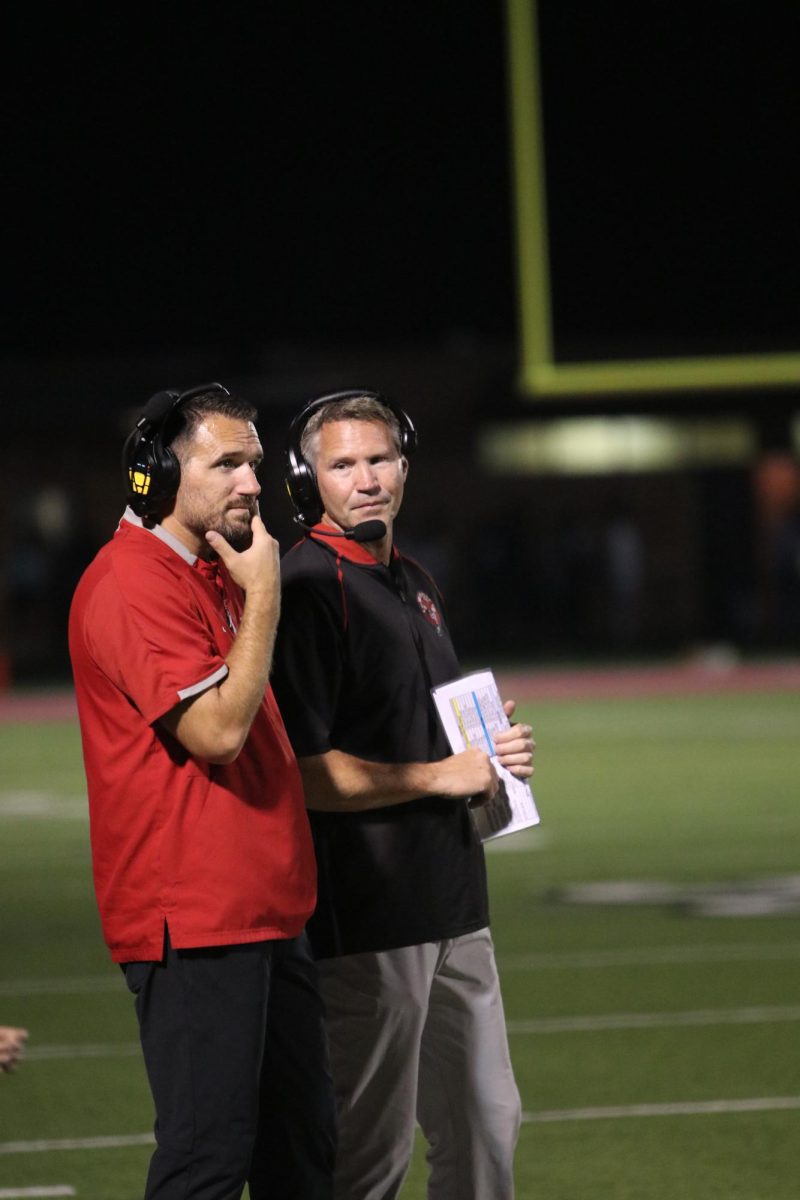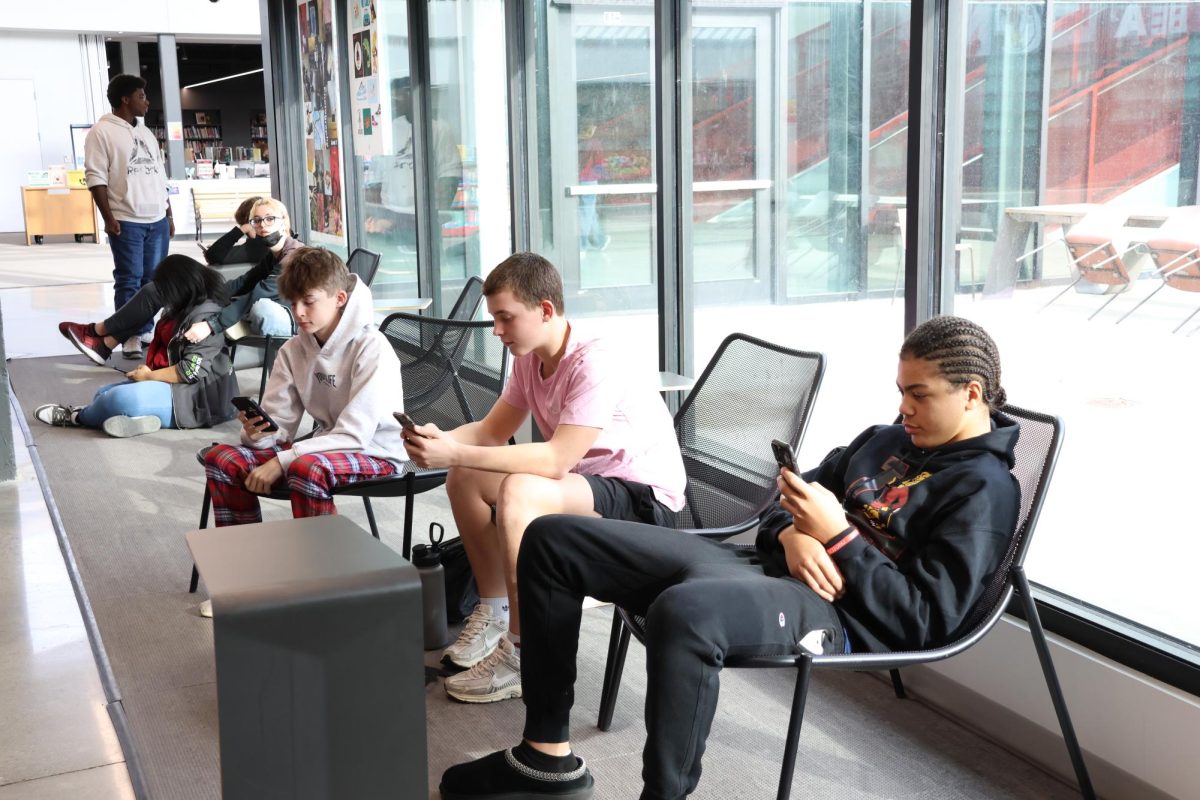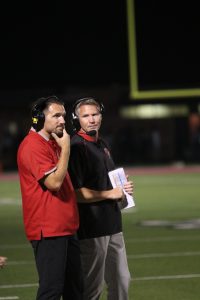Lay off the homework
Students should earn an education, not just a grade
Too much homework leaves students overburdened.
January 2, 2020
If homework is really supposed to be a tool to positively affect students and not merely a form of punishment or busywork, then educators should treat it that way.
Lines have been blurred and homework is often less of a thing to help students improve and more of a dreaded task that adds weight to teenagers’ already heavy shoulders.
For many, homework is at the bottom of their to-do lists. Should their grades be affected because of that? Students dedicate seven-plus hours to school every day, and at times we simply do not have the extra time to give.
High schoolers don’t get enough credit for the things they do after the bell. Many are expected to balance school, a job, extracurriculars and social lives all while making sure their mental health doesn’t deteriorate. At some point, something has to give. If it happens to be that you have to just take the ‘L’ on the 10-page study guide that you have never benefited from anyway, then so be it.
Arguably, the most frustrating part of all of this is when teachers disregard any excuse for incompletion they deem invalid but don’t hold themselves to the same standard. Although I do sympathize with educators having a sizable workload with assignments needing to be graded for each one of their classes, we are right there with them. It is frustrating to hear things like, “I’ve been busy,” as an excuse for things being left ungraded for weeks or even months because the fact of the matter is that it would be unacceptable for us to pull that card if the roles were reversed. I have had to put homework above family time, sports practices, sleep and much more. So, asking me to value an assignment or project and not giving the same energy in return is frustrating.
I understand that when students choose advanced or AP classes, they are signing up for the extra work-load. But when on-level classes pile on the homework, I see a problem. Many teachers will make the argument that piling on homework will better prepare students for what they will face in college, but especially in on-level classes, college is not always what students are working toward. Educators need to ensure assignments truly have an educational purpose, or students will respond accordingly.
Assignments that don’t seem to hold any educational value to students leave more excuse for them to just look up the answers online, copy off someone else, etc. In this case, no one learns anything, and grades in PowerSchool are not based on anything meaningful but how well students can fabricate information to make it look like their own. A study conducted by Mollie Galloway at Lewis and Clark College shows just how expendable the majority of homework is. In fact, only 6 percent of 4,000 students found their homework “very useful.” If a student must make time for an assignment, make their time worth something.
I am not anti-homework by any means.
When homework is utilized correctly, it can be a great thing, but when abused, the negative effects quickly outweigh the positives.
As teachers look to second semester, here’s a homework assignment for them: Emphasize quality over quantity. Make every assignment meaningful, and show students the time they’re investing matters by grading the work promptly.



